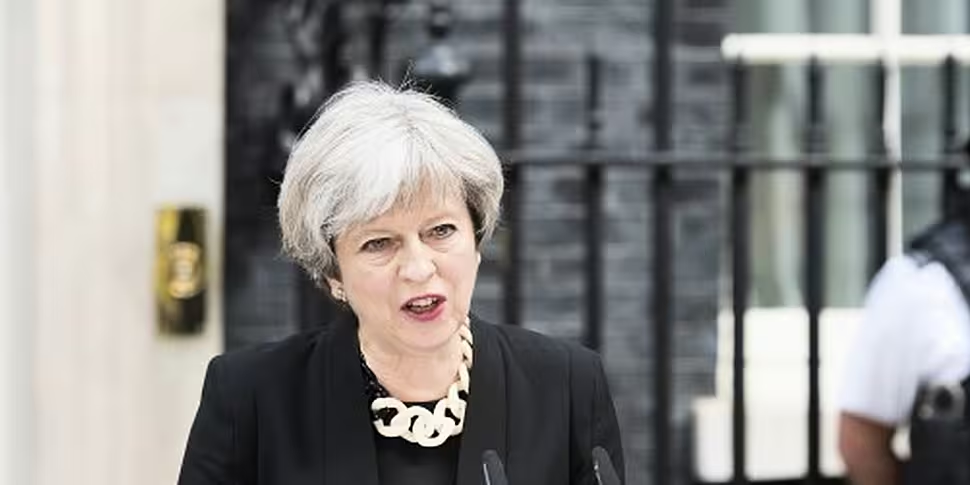British Prime Minister Theresa May has said there is too much tolerance of extremism in the UK adding that it is time to take a more robust approach in tackling it.
Mrs May was speaking in Downing Street following the van and knife attack that killed seven people and injured 48 in London last night.
Biritain's NHS (National Health Service) has warned that 21 of those injured in the attack are currently in a critical condition.
Mrs May said that Britain is now facing a "new trend in the threat we face."
"We cannot and must not pretend that things can continue as they are," she said.
"Terrorism breeds terrorism, and perpetrators are inspired to attack not only on the basis of carefully constructed plots after years of planning and training, and not even as lone attackers radicalised online, but by copying one another and often using the crudest of means of attack," she said.
She said intelligence services had disrupted five plots over the past three months – a time period which has now seen three tragic attacks on UK soil.
An attack on Westminster Bridge in March left five people dead, and a bomb attack at the Manchester Arena at the end of an Ariana Grande concert two weeks ago killed 22.
Four point strategy
In response to the wave of attacks, Mrs May listed four key points that needed to change in order to tackle the threat of extremism.
She listed four areas where she said change needed to take place.
The first was the fight against the "evil ideology" inspiring the repeated attacks, which she called a perversion of Islam and of the truth.
She said the fight could not be one through military intervention alone and called for a defence of “pluralistic British values” in the face of “preachers of hate.”
Secondly she called for international action to tighten controls of the online world, adding that the “safe space” the internet is providing to terrorists needs to be shut down.
"We cannot allow this ideology the safe space it needs to breed,” she said. “Yet that is precisely what the internet and the big companies that provide internet-based services provide."
"We need to work with allied democratic governments to reach international agreements that regulate cyberspace."
Mrs May’s third aim was for British society to have the "difficult and embarrassing conversations" needed to "stamp out extremism across the public sector and across society."
Appealing to the British people to "come together" to tackle extremism she said "we need to live our lives not in a series of segregated, separated communities, but as one truly United Kingdom."
Her fourth point was to review the country's counter-terrorism strategy in the light of the changing threat.
She said the current regulation were “robust” but insisted they need to be reviewed.
She said that if an increase in jail sentences for terrorism-related offences – however minor – was required it would be introduced.
General election
Campaigning ahead of next Thursday’s British general election has been suspended as a mark of respect, and will resume tomorrow.
“Violence can never be allowed to disrupt the democratic process, so those campaigns will resume in full tomorrow and the general election will go ahead as planned on Thursday," she said.
In response to Mrs May’s comments on introducing tighter restrictions on the online world, Facebook director of policy, Simon Milner said: "We want Facebook to be a hostile environment for terrorists."
He said the company "works aggressively to remove terrorist content" and that law enforcement authorities are immediately alerted when the company becomes aware of any emergency involving immanent arm to someone’s safety.









